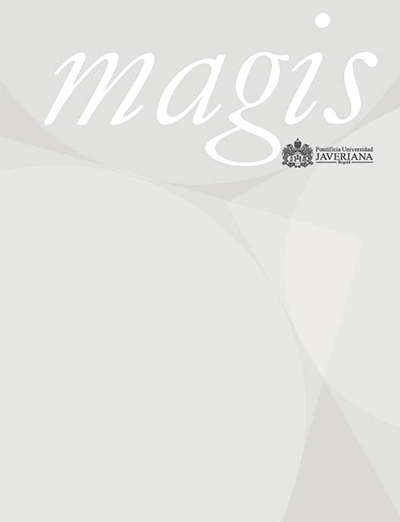Resumen
En este artículo se parte de una somera descripción sobre los “estados del mundo” contemporáneos, signados por la inequidad y la violencia, para reflexionar sobre la importancia de una política para la paz en el campo de la educación desde la perspectiva teórica de la narrativa, que supone una interrogación sobre el lenguaje, el sujeto –y las subjetividades- y, por ende, la valoración de voces, memorias, biografías, en el trabajo cotidiano en el aula y más allá, como un aporte ético a la ampliación de visiones del mundo, el reconocimiento del otro y de la diferencia, tanto a nivel de culturas como de identidades.
Adorno, T. (1966). La educación después de Auschwitz. Conferencia originalmente realizada por la Radio de Hesse el 18 de abril de 1966; se publicó en Zum Bildungsbegriff des Gegenwart, Francfurt, 1967, p. 111 y siguientes. Recuperado de http://www.ddooss.org/articulos/textos/Theodor_W_Adorno.htm
Agamben, G. (23 décembre 2015). De l'Etat de droit à l'Etat de sécurité. Le Monde. Recuperado de http://www.lemonde.fr/idees/article/2015/12/23/de-l-etat-de-droit-a-l-etat-de-securite_4836816_3232.html
Alba, A. de (2007). Currículum-sociedad. El peso de la incertidumbre, la fuerza de la imaginación. México: Instituto de Investigaciones sobre la Universidad y la Educación, Universidad Nacional Autónoma de México, IISUE-UNAM.
Arfuch, L. (2002). El espacio biográfico. Dilemas de la subjetividad contemporánea. Buenos Aires: Fondo de Cultura Económica, FCE.
Argentina, Comisión Nacional sobre la Desaparición de Personas, CONADEP (1984). Nunca Más. Buenos Aires: Editorial EUDEBA. Recuperado de http://www.desaparecidos.org/arg/conadep/nuncamas/
Argentina (1985). Diario del Juicio. Recuperado de http://www.memo- riaabierta.org.ar/juicioalasjuntas/, http://www.perfil.com/me dios/descargue-gratis-el-diario-del-juicio-0501-0044.phtml?utm_ source=redir_url_legacy
Austin, J. L. [1962] (1982). Cómo hacer cosas con palabras. Buenos Aires: Paidós.
Bajtin, M. [1979] (1982). Estética de la creación verbal. México: Siglo XXI. Barthes, R. [1966] (1974). Introducción al análisis estructural de los relatos. En Comunicaciones. Análisis estructural del relato, 9-43. Buenos Aires: Tiempo Contemporáneo.
Benveniste, É. [1966] (1983). Problemas de lingüística general I. México: Siglo XXI.
Benveniste, É. [1977] (1983). Problemas de lingüística general II. México: Siglo XXI.
Butler, J. (2007). Vida precaria. Buenos Aires: Paidós.
Calveiro, P. (2012). Violencias de Estado. Buenos Aires: Siglo XXI.
Cavarero, A. (2009). Horrorismo. Nombrando la violencia contemporánea. México: Anthropos, Universidad Autónoma Metropolitana, UAM, Iztapalapa.
Danto, A. (1989). Historia y narración. Barcelona: Paidós.
Derrida, J. (1987). Tímpano. En Márgenes de la filosofía, 15-35. Madrid: Cátedra.
Diario Página/12, Redacción País (31 de enero de 2016). Escuela y Memoria. Diario Página/12. Recuperado de http://www.pagina12.com.ar/diario/elpais/1-291504-2016-01-31.html
Ducrot, O. (1980). Dire et ne pas dire. Paris: Hermann.
Dussel, I. (2015). Ponencia Modos de hacer escuela en la cultura digital. En Nina Alejandra Cabra-Ayala & Ruth Nélida Pinilla-Enciso (eds.). Saberes Nómadas, Memorias del Seminario Internacional Saberes Nómadas: Derivas del Pensamiento Propio, Bogotá, 21, 22 y 23 de octubre de 2015. Bogotá: Editorial de la Universidad Central de Colombia, Instituto de Estudios Sociales Contemporáneos, IESCO.
Forti, S. (30 de enero de 2016). ¿Estamos ante el mal absoluto? Revista Cultural Ñ, Diario Clarín. Buenos Aires. Recuperado de http://www.revistaenie.clarin.com/ideas/malabsoluto_0_1513648630.html
Habermas, J. (1990). Historia y crítica de la opinión pública. Barcelona: Gustavo Gili.
Halbwachs, M. E. [1941]) (1992). On Collective Memory. Chicago: The University of Chicago Press.
Hall, S. (1996). Who needs identity? En Stuart Hall & Paul du Gay (eds.). Questions of Cultural Identity, 1-18. London: Sage.
Lejeune, P. (1970). Le pacte autobiographique. Paris: Editions du Seuil. OXFAM (18 de enero de 2016). Una economía al servicio del 1%. Acabar con los privilegios y la concentración de poder para frenar la desigualdad extrema. Informe de Oxfam. Recuperado de https://www.oxfam.org/sites/ www.oxfam.org/files/file_attachments/bp210economy-one-percent-tax-havens-180116-es_0.pdf
Ricoeur, P. (1983) (1984) (1985). Temps et récit, Tomos I, II y III. Paris, Editions du Seuil.
Roffé, M. (2009). Floating Lanterns. Edición bilingüe (Anna Deeny, trad. Al inglés), Bristol, United Kingdom: Shearsman Books.
Sennett, R. [1978] (1992). El declive del hombre público. Barcelona: Península. Recuperado de http://www.ddooss.org/libros/Richard_Sennett.pdf
Sloterdijk, P. (2010). Actio in Distans. Sobre las formas de producción telerracional del mundo. En Gabriel Aranzueque (ed.). Ontología de la distancia. Filosofías de la comunicación en la era telemática, 141-167. Madrid: Abada Editores.
White, H. [1987] (1992). El contenido de la forma. Barcelona: Paidós. White, H. (2010). Ficción histórica, historia ficcional y realidad histórica. Buenos Aires: Prometeo.
Wittgenstein, L. (1988). Investigaciones filosóficas. México: Universidad Nacional Autónoma de México, UNAM, Editorial Crítica.
La revista magis, Revista Internacional de Investigación en Educación by Pontificia Universidad Javeriana se encuentra registrada bajo la licencia Creative Commons Reconocimiento 4.0 Internacional. Por lo tanto, esta obra se puede reproducir, distribuir y comunicar públicamente en formato digital, siempre que se reconozca el nombre de los autores y a la Pontificia Universidad Javeriana. Se permite citar, adaptar, transformar, autoarchivar, republicar y crear a partir del material, para cualquier finalidad (incluso comercial), siempre que se reconozca adecuadamente la autoría, se proporcione un enlace a la obra original y se indique si se han realizado cambios. La Pontificia Universidad Javeriana no retiene los derechos sobre las obras publicadas y los contenidos son responsabilidad exclusiva de los autores, quienes conservan sus derechos morales, intelectuales, de privacidad y publicidad.
El aval sobre la intervención de la obra (revisión, corrección de estilo, traducción, diagramación) y su posterior divulgación se otorga mediante una licencia de uso y no a través de una cesión de derechos, lo que representa que la revista y la Pontificia Universidad Javeriana se eximen de cualquier responsabilidad que se pueda derivar de una mala práctica ética por parte de los autores. En consecuencia de la protección brindada por la licencia de uso, la revista no se encuentra en la obligación de publicar retractaciones o modificar la información ya publicada, a no ser que la errata surja del proceso de gestión editorial. La publicación de contenidos en esta revista no representa regalías para los contribuyentes.



